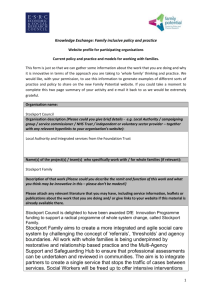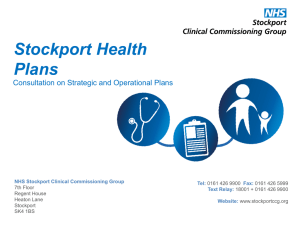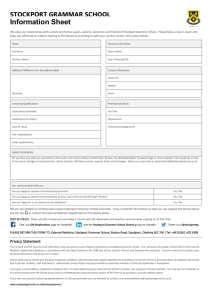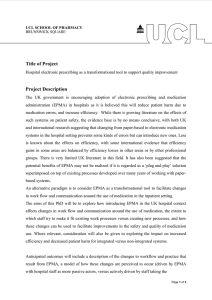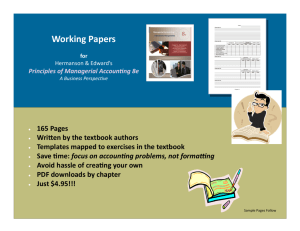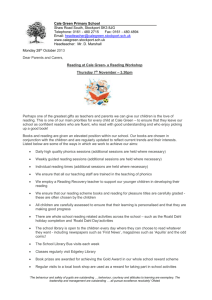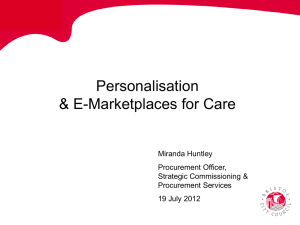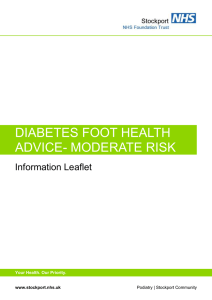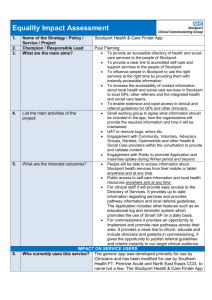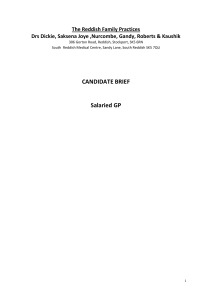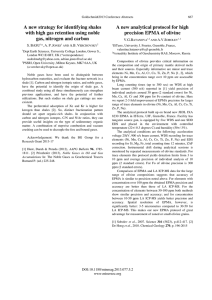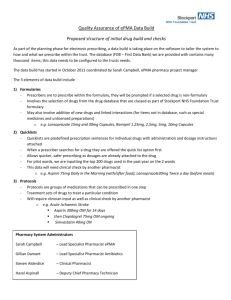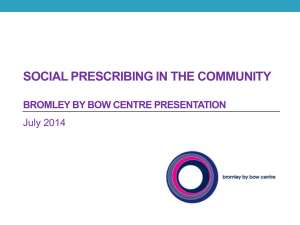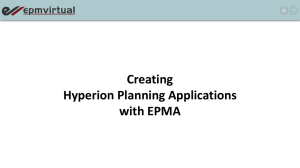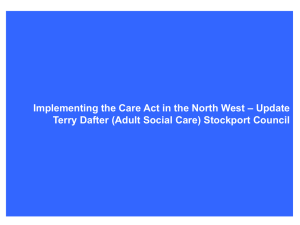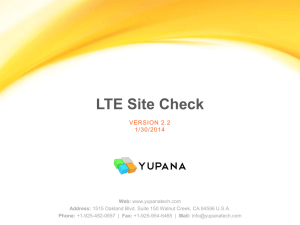ePMA Testing - ePrescribing Toolkit
advertisement
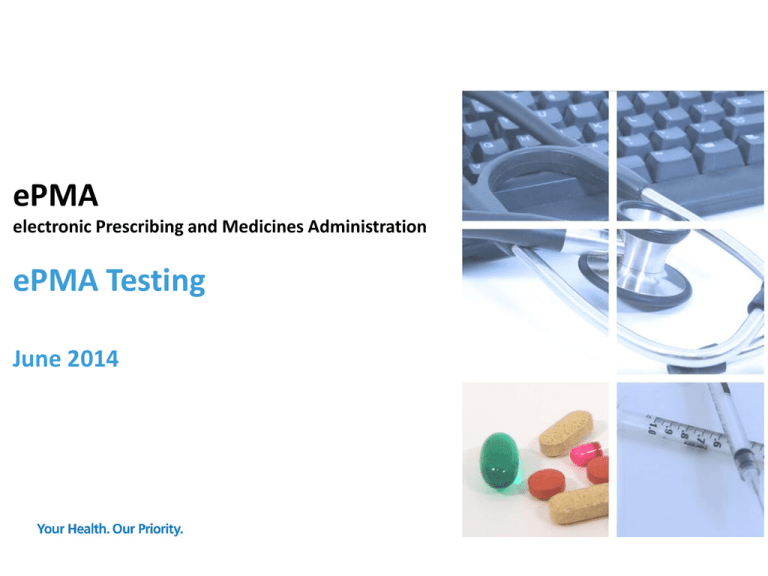
ePMA electronic Prescribing and Medicines Administration ePMA Testing June 2014 Presentation outline • About Stockport • Our ePMA Journey • System build and associated QA processes • System testing and processes/documentation • Lessons learnt About Stockport • Stepping Hill Hospital based in Stockport • 736 beds • Look after a population of over 396,000 in Stockport & High Peak • Over 5,600 staff Our ePMA journey System build - Approach • Where to start? • We split into 5 areas - Formularies Order sentences (QuickLists) Order sets (Protocols) Rules/intelligence General configuration • Focussed on initial areas of rollout and evolved during rollout - Top 200 drugs for first 2 wards and worked from there - Shared Trust/GMMMG formulary - Project team fed into a lot of the configuration decisions • Ensure someone responsible for each area to help make decisions and for QA purposes - e.g. we have a Pharmacist for each BNF Chapter System build – QA process • QA process approved by Trust Prescribing Committee (Drug & Therapeutics) • Involved lots of printouts, screenshots and persuasion • Mainly Pharmacists, but Clinicians involved for Protocols Medchart Quicklist checking Data entry by: Date: Checked by: (sign) ___________ Date: ___/___/___ EACH PAGE NEEDS TO BE SIGNED Annotate comments and feed back to Sarah System build – Going forward • Don’t think you’re done on day 1 of go live • Constant refinement and adjustment in initial months • Have a process for requesting changes & document everything • Don’t relax your standards from initial data build - • Spend time getting ready for surgical areas - • Everything in test first, sign off, then live use Our anaesthetists have really embraced protocols/order sets Now everyone can see the potential - Requests for development and fresh ideas System testing – Our approach • Real life scenarios with real life examples • We have 20 example patients that we prescribe review and administer medications • Complex patients covering lots of different medications • Simulate ward environment, follow usual processes (3 days of administrations) • Ensure each and every element of the system is tested, documentation is key • Use different logins testing each user role • Don’t forget to test user permissions System testing - Documentation • Testing log and issue log are essential • Log each and every action that is completed • We split into - Configuration Meds on admission Prescribing Administration Pharmacy review & ordering - Clinical Review Drug data Rules New features & fixes Issues resolved since last version • Careful consideration of headings e.g. • Dual monitor workstation has been indispensable! - - Reporting Support module (back up charts/system monitoring) ‘Other’ System testing – Recording issues • Record each and every issue - No matter how big or small Whether able to replicate or not Document which user role you were logged in as - Keep issue log up to date, review daily during testing period - Clear screenshots and replication steps are best way of explaining issues - Where possible share issues and testing experience with other sites System testing – At point of upgrades • Once upgrades are complete a basic set of testing is required to release the system back to users • Have a list of basic functions that need to be tested as part of this process • The start of ours is shown here, it is 43 steps in total but covers all basic functions System testing – Lessons learnt • Ask supplier for details of known issues • Study release notes and write testing script based on new features and fixes • Screenshots are key • Learn from other sites • Real life charts with real life examples • Don’t aim to do in one sitting • Log everything • Always test printouts, don’t just look at them onscreen Thank you
